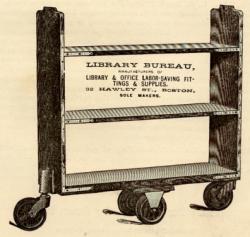I’ve done my share of software and hardware procurements – not as many as some consultants – but enough to know my way around an RFP (Request for Proposal). And the truth is that RFPs are really horrible. They are full of contract language that few people understand and, unfortunately, they are often loaded with requirements that the Library doesn’t understand; or worse, requirements that the vendors themselves don’t understand!
I’ve seen the same RFP issued by many different libraries. Some of these RFPs were actually created by the vendor and has a few gotcha requirements that ensure their competitors will get the boot. I’ve also seen RFPs that have conflicting requirements – this happens when the Library doesn’t understand the requirements they’ve included.
But the development of an RFP has the opportunity to be an empowering experience for the library if it is done correctly. However, this requires leadership and time. It’s not as simple as doing a couple focus groups and checking off the requirements from someone else’s RFP.

